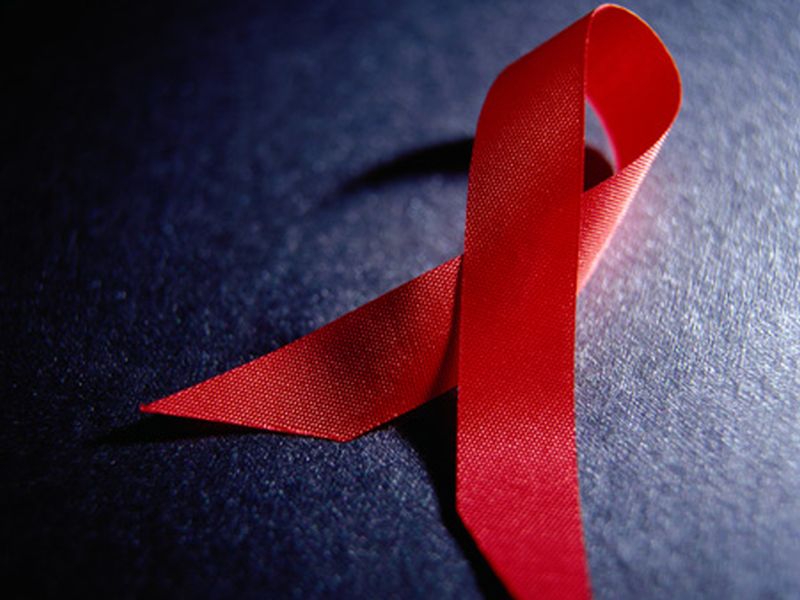U.S. Expert Panel Supports HIV-Prevention Pill for People at High Risk
By Dennis ThompsonHealthDay Reporter

TUESDAY, June 11, 2019 (HealthDay News) -- A daily pill that can block transmission of HIV should be prescribed to people at high risk of infection with the AIDS-causing virus, according to a highly influential panel of experts.
The treatment -- called pre-exposure prophylaxis (PrEP) -- has proven highly effective at preventing HIV spread in clinical trials, an evidence review by the U.S. Preventive Services Task Force (USPSTF) has concluded.
The task force gave PrEP its highest-level recommendation, a grade A, which means that the potential benefit of the treatment is substantial and backed by strong medical evidence.
Best known as the two-drug combo pill Truvada (emtricitabine-tenofovir), the medication prevents HIV from establishing a permanent infection in people exposed through sex or injection drug use, according to the U.S. Centers for Disease Control and Prevention.
"Even though HIV is not in the media as much as it used to be, it's still a major public health problem in the U.S., with almost 40,000 people getting HIV every year," USPSTF Chairman Dr. Doug Owens said. "These are quite effective interventions that can help reduce new HIV infection."
An estimated 1.1 million people in the United States are living with HIV, and more than 700,000 have died of AIDS since the first cases were reported in 1981, the task force said.
The grade A recommendation should help expand insurance coverage of the pricy medication and get it into the hands of people who need it, experts said.
The USPSTF regularly issues evidence-based guidance on preventive health practices, and the Affordable Care Act (also known as "Obamacare") obliges insurance companies to cover preventive measures that receive strong task force recommendations.
"We have seen firsthand at our clinics how the scale up of PrEP can dramatically decrease the rates of new HIV infection, and improve the quality of life for those individuals who have access to this intervention," said Dr. Antonio Urbina. He is an associate professor of infectious diseases at the Icahn School of Medicine at Mount Sinai, in New York City.
"Besides near-perfect protection against HIV, PrEP is a good gateway for young adults to access preventive and primary care services," Urbina added.
With the task force's "bold" recommendation, "the elusive goal of ending the HIV epidemic in the U.S. now seems possible," Urbina said.
But obstacles remain. The only U.S. Food and Drug Administration-approved drug for PrEP, Truvada, currently costs $20,000 a year, said Dr. Rochelle Walensky, an infectious disease specialist at Massachusetts General Hospital in Boston.
"The real challenge with PrEP isn't how good it works once you take it," Walensky said. "We know it's over 90% effective in people who are taking the drug."
Instead, people who should be taking PrEP face a number of barriers, not the least of which is its cost, she said.
"The challenge with PrEP's value in HIV prevention is the number of people who walk in the door and get it, the number of prescribers who are willing and able and knowledgeable to give it, and the ability of people willing to take it reliably once they're prescribed it," Walensky said.
The task force emphasized that PrEP is not for everyone. Groups at high risk of HIV infection who should be on PrEP include:
- Men who have sex with other men and are in a relationship with an HIV-positive person; who use condoms inconsistently; or who have had a sexually transmitted disease within the past six months.
- Heterosexual women or men whose sex partner is HIV-positive; who use condoms inconsistently with a partner whose HIV status is unknown; or who have contracted syphilis or gonorrhea within the past six months.
- People who inject drugs and regularly share needles.
PrEP prescriptions are most often written in the Northeast and the West, "but we also know the epidemic is in the South," Walensky said.
Southern states are least likely to have expanded Medicaid under Obamacare, preventing insurance access to many, and people at high HIV risk in the South also face social stigma in seeking out PrEP, she added.
"This is a really bold and wonderful step forward that needs to be applauded, but I also don't at all think we can let down any sort of guard to say this is going to be the answer," Walensky said. "It probably doesn't do all of the heavy lifting for the patients who need it most."
The task force recommendation was published online June 11 in the Journal of the American Medical Association.
More information
The U.S. Centers for Disease Control and Prevention has more about pre-exposure prophylaxis.

The news stories provided in Health News and our Health-E News Newsletter are a service of the nationally syndicated HealthDay® news and information company. Stories refer to national trends and breaking health news, and are not necessarily indicative of or always supported by our facility and providers. This information is provided for informational and educational purposes only, and is not intended to be a substitute for medical advice, diagnosis, or treatment.

